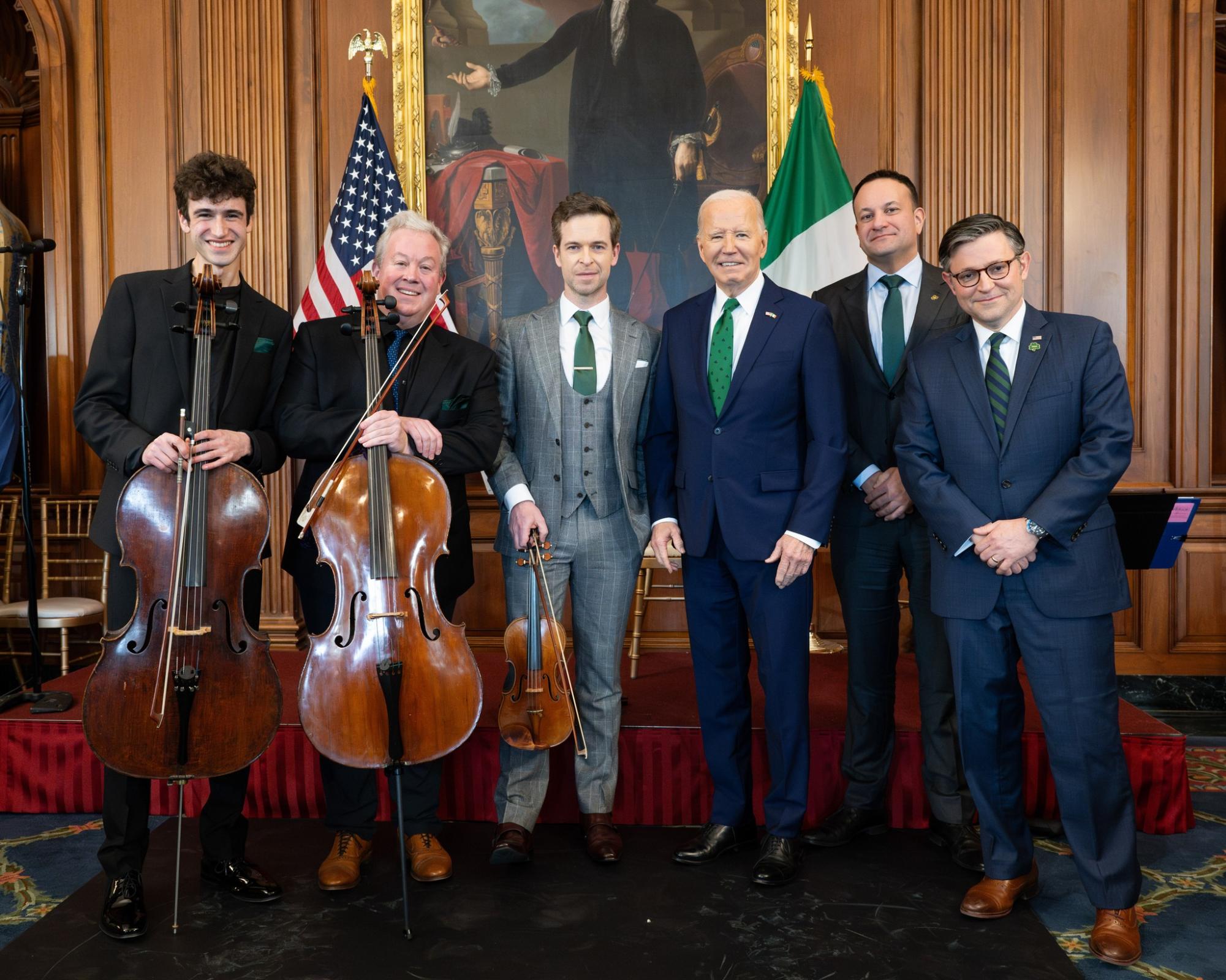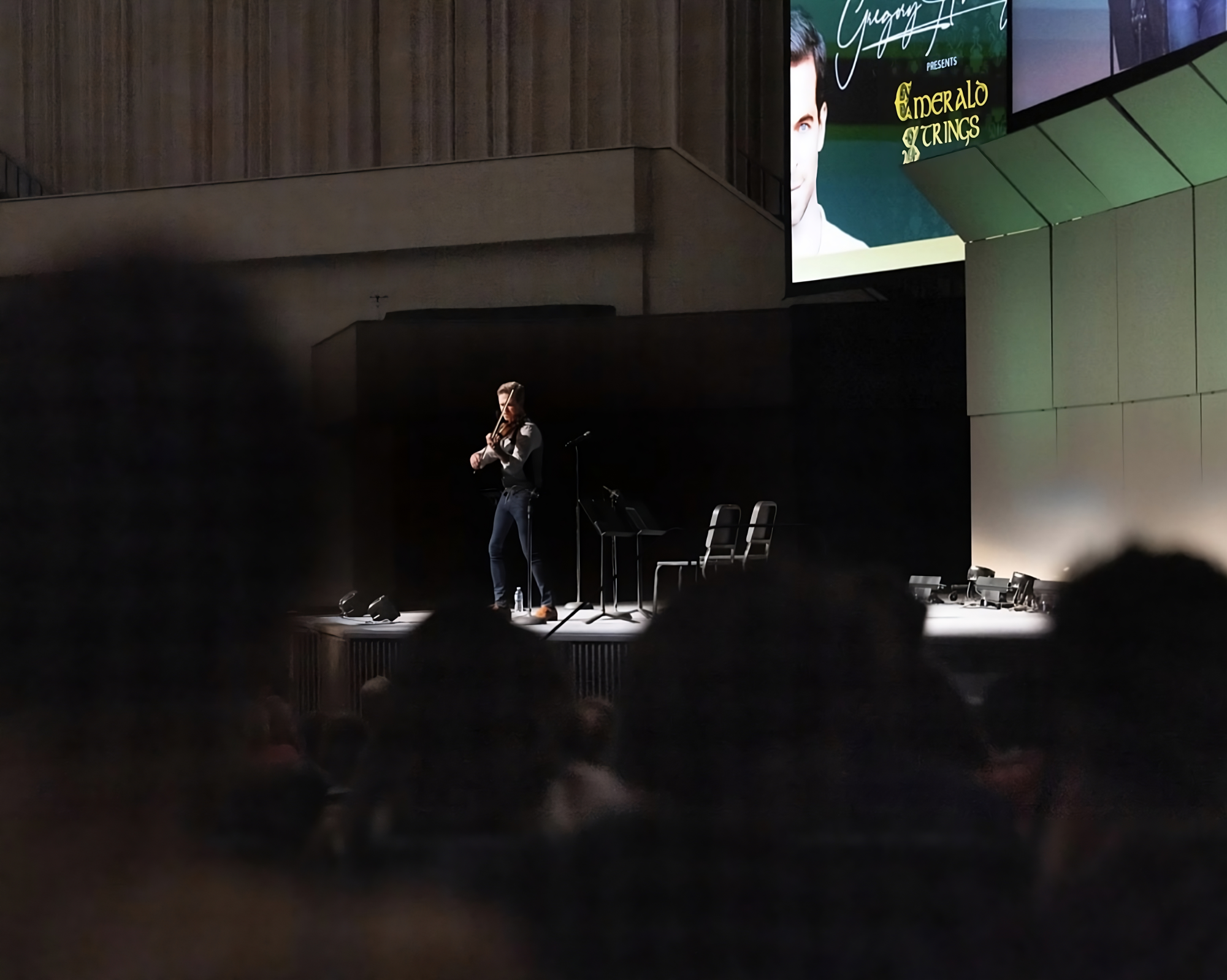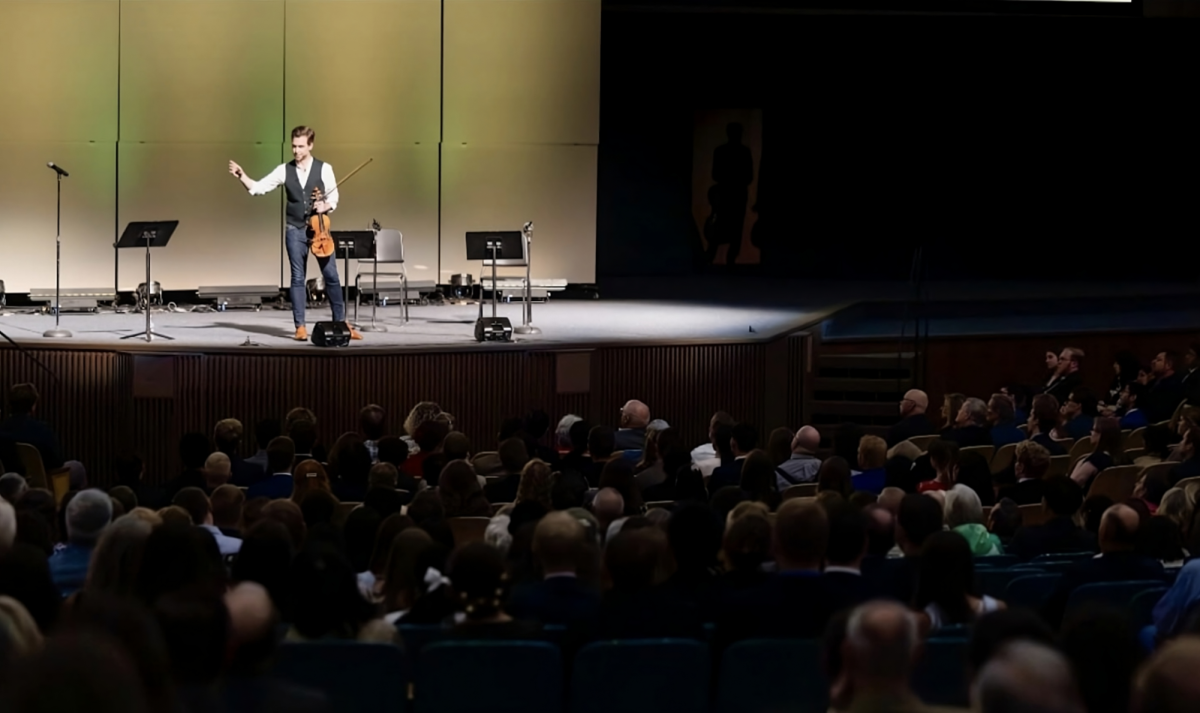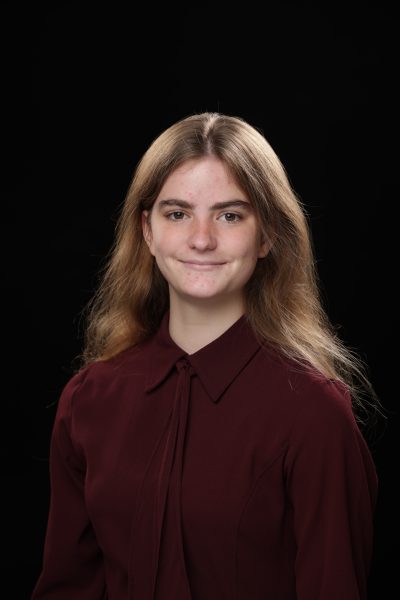On Sept. 12, the Bob Jones University community witnessed a remarkable spectacle as three musicians played the same cello simultaneously. The man responsible for that also presented a brand-new arrangement of “Amazing Grace” and took a selfie with the entire audience. Who was that Irish musician? And why was his performance so unique?
Gregory Harrington is one of Ireland’s most recognized violinists. He has been performing for nearly 30 years, on four continents and in over 25 countries. Mr. Harrington’s professional career has taken him to Carnagie Hall, the Oval Office and the National Performing Arts Center in Beijing. When asked by The Collegian before his BJU concert if he has a favorite past performance, Mr. Harrington stated, “It is very hard to pick one, because at every concert you give everything. Your last performance is invariably your favorite.”

Mr. Harrington first picked up a violin at 4 years old after witnessing some musicians performing at an equine show. He told his mother he wanted to play the violin, and she was more than willing to give her son the opportunity to learn an instrument she had wanted to play when she was young. She bought him his first violin the next day.
The young Gregory devoted himself to his learning. He spent every Saturday and half of every Wednesday at the Royal Art Academy learning, studying and practicing. He made the decision to quit rugby to protect his fingers. He began taking part in competitions when he was ten years old.
Mr. Harrington was so invested and ambitious at a young age that he brought his instructor Beethoven’s “Violin Concerto” and told him he wanted to play this “Mecca of pieces.” His teacher asked him, “Do you want to play this in your living room the rest of your life? Or do you want to play this in concert halls the rest of your life?” Mr. Harrington remembers it as the moment he made a choice to build a career out of his hobby.
As his fame has spread and he has gained more freedom to control his repertoire, Mr. Harrington’s performance style has changed. Trained to play the classical music of Bach and Beethoven, he spent the early years of his career almost exclusively playing classical music. Only later was he able to add traditional Irish songs such as “The Fields of Athenry,” which he performed near the beginning of his concert at BJU, part of the university’s Concert, Opera and Drama Series.
In 2010, he had the opportunity to collaborate with a renowned Irish fiddler, Martin Hayes. Mr. Harrington says that this experience “opened my ears” to traditional Irish music. As a result of that experience, he has spent the past decade trying to bridge the gap between traditional Irish music and the classical style.

“Music is universal. It’s just a language. A language that needs no alphabet,” he said.
If music is a language, then Mr. Harrington has learned to combine dialects. His goal with his tour of Emerald Strings is to tell a story by either putting a classical twist on traditional Irish pieces or a uniquely Irish twist on classical pieces, such as “Moonlight Sonata,” by adding a traditional Irish rhythm or creating new arrangements like he did for “Amazing Grace.”
“The beauty of different genres is that there is no one way to interpret something,” he explained. “Once you cross genres like that you have an opportunity to create something unique for the audience.”
Mr. Harrington’s stated personal ambition is to tell stories and create memories.
“If you can change just one person’s perception of music where they will remember that for the rest of their lives, job done.”
He remembers his mother instilling in him that “the audience is your friend,” so his goal is to make his performances audience oriented. Hence, the Emerald Strings trio playing one cello and the aforementioned audience selfie.
His long-range goal is to continue to tell the stories of Ireland through his special blend of musical genres and using emotional pieces such as “Schindler’s List” to represent the shared emotions experienced by any who witness a massive loss of life.
Mr. Harrington met with student musicians the day before his performance to discuss his experience performing while managing his own business. He left one last piece of advice to aspiring musicians.
“The quality of your practice is so, so important. You really want to push yourselves so that every motion means something. Make sure that you are a little bit better tomorrow than you are today.”
























































